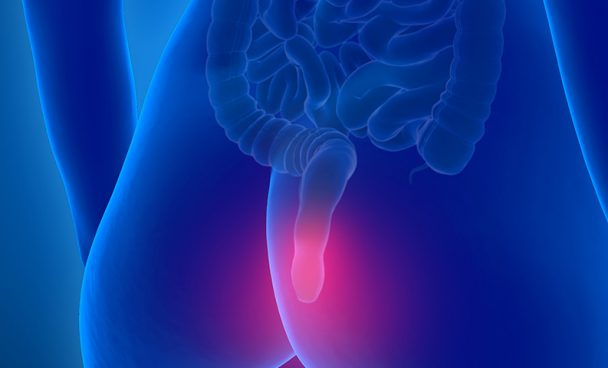Anal Cancer
Anal cancer is a type of cancer that begins in the anus, which is the opening at the end of the rectum. Most anal cancers are caused by the human papillomavirus (HPV).
Signs and Symptoms Of Anal Cancer
-
Rectal bleeding
-
Pain or pressure in the anus or rectum
-
Itching or discharge from the anus
-
A lump near the anus
Types of Anal Cancer
Several types of cancer can occur in the anus, including:
-
Squamous cell carcinoma: The most common type of anal cancer, originating in the thin, flat cells lining the anus.
-
Adenocarcinoma: This type starts in the glandular cells of the anus.
-
Basal cell carcinoma: A less common form that starts in the basal cells of the anus.
When to Consult a Doctor
If you notice any persistent symptoms such as rectal bleeding or a lump near the anus, you should consult a doctor for an evaluation.
Causes
The main cause of anal cancer is infection with HPV. Other risk factors include smoking, having multiple sexual partners, and a weakened immune system.
Risk Factors Involved in Anal Cancer
-
HPV infection: The most significant risk factor for anal cancer.
-
Smoking: Smoking increases the risk of anal cancer.
-
Weakened immune system: Conditions like HIV/AIDS can raise the risk.
Anal Cancer Diagnosis
To diagnose anal cancer, the following methods may be used:
-
Digital rectal exam (DRE): A physical examination where the doctor feels for lumps or abnormalities.
-
Anoscopy: A procedure using a short tube to look inside the anus.
-
Biopsy: A sample of tissue is taken for laboratory analysis to confirm the presence of cancer.
Stages of Anal Cancer
The stages of anal cancer range from 0 to 4, indicating the extent of cancer spread:
Stage 0: Cancer is confined to the inner lining of the anus.
Stage 1: Cancer has grown into the muscle layer of the anus.
Stage 2: Cancer has spread beyond the muscle layer but not to nearby lymph nodes.
Stage 3: Cancer has spread to nearby lymph nodes.
Stage 4: Cancer has spread to distant organs, such as the liver or lungs.
Treatment Of Anal Cancer
Surgical Intervention
Depending on the cancer stage, surgery may be necessary. Surgical options include:
-
Local resection: Removal of the tumor and a small margin of surrounding tissue.
-
Abdominoperineal resection: Removal of the anus, rectum, and part of the colon, often required for advanced stages.
Chemotherapy
-
Chemotherapy drugs may be used to shrink tumors and kill cancer cells, often combined with radiation therapy.
Radiation Therapy
-
Radiation therapy uses high-energy rays to target and destroy cancer cells.
Targeted Therapy
-
Targeted therapy drugs attack specific mutations in cancer cells, minimizing damage to normal cells.
